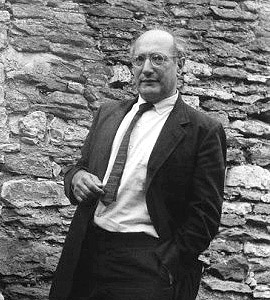A Quote by Simone de Beauvoir
Self-consciousness is not knowledge but a story one tells about oneself.
Quote Topics
Related Quotes
First, my people must be taught the knowledge of self. Then and only then will they be able to under-stand others and that which surrounds them. Anyone who does not have a knowledge of self is considered a victim of either amnesia or unconsciousness and is not very competent. The lack of knowledge of self is a prevailing condition among my people here in America. Gaining the knowledge of self makes us unite into a great unity. Knowledge of self makes you take on the great virtue of learning.
Many people become self-conscious when they communicate. Whether it's writing or speaking, they are consumed by anxiety. Self-consciousness is an impediment to what is required to serve an audience effectively. One's goal must be to achieve audience consciousness. To put oneself in their place, to recognize that the value of any communication arises from how it is received by them, not by what it means to the author. Rather than learning a multiplicity of rules for speaking, for example, I would suggest that a focus on serving one's audience will simplify and clarify everything.
Self-knowledge is not the knowledge of a dead self, self-knowledge is the knowledge of the process of the self. It is an alive phenomenon. The self is not a thing, it is an event, it is a process. Never think in terms of things, the self is not there inside you just like a thing waiting in your room. The self is a process: changing, moving, arriving at new altitudes, moving into new planes, going deeper into new depths. Each moment much work is going on and the only way to encounter this self is to encounter it in relationship.
In a world full of danger, to be a potentially seeable object is to be constantly exposed to danger. Self-consciousness, then, may be the apprehensive awareness of oneself as potentially exposed to danger by the simple fact of being visible to others. The obvious defence against such a danger is to make oneself invisible in one way or another.
Not the least of the problems in clarifying one's consciousness is developing the stoic determination to criticize one's own softness or sentimentality toward oneself. Ego, self-solicitous about its own tenderness, is the ultimate policeman over its own false consciousness, dementedly uprooting every healthy seedling of insight into the truth. As Kierkegaard remarked, most people are subjective toward themselves and objective toward all others, but the real trick and task of life is to learn to be just the very opposite.
My idea of elegance – and this refers to women as well as men – is that someone is elegant when he or she shows a good knowledge of what fits them, where you can find naturalness and self-esteem. Not showing off. Elegance is the idea of showing an optimistic depiction of oneself, and to lose oneself in the frivolity of style and fashion.






































